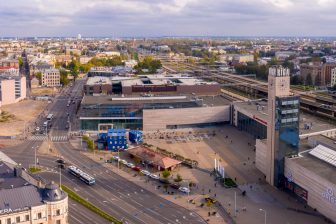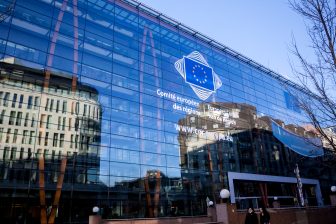Dutch Masterplan rail freight in the making
A Dutch masterplan with measures to enhance the position of the rail freight industry is in the making, following the example of Germany, which is to implement measures this year. The ministry of Infrastructure and Water Management, in cooperation with various parties gathered in the ‘Spoorgoederentafel’ (Rail Freight Table) is currently studying a tentative plan, which should result in specific measures in June this year.
The main aim of the measures is to create a level playing field for the Dutch rail freight sector. It is a response to the German Masterplan, which was incorporated in the coalition agreement beginning this year. Most notably, the German government has promised to reduce track access charges by half, a measure which has prompted the Dutch rail freight sector to make appeal for similar steps. This should be done as soon as next year, by means of subisidies or the cancellation of mark-ups, the Spoorgoederentafel suggests.
Measures
Similarly, the roll-out of the European Rail Traffic Management System (ERTMS) should be more in line with that of neighbouring Germany, the masterplan reads. The Netherlands currently witnesses a proliferation of ERTMS systems. Locomotives must be converted to operate on various systems, a financial burden carried by the industry. Rather than implementing various levels of ERTMS, the railway should be adjusted as it is implemented across the border. Moreover, there should be a fund for the conversion of locomotives, according tot he Masterplan.
Restrictions on the transportation of dangerous chemicals is another point of discussion. Currently, the Netherlands knows certain risk ceilings, which are too often exceeded according to the ministry. New mark-ups have been suggested to stimulate the use of the Betuweroute for transportation of dangerous goods. However, the Spoorgoederentafel wants a review of the risk ceilings, with a more realistic safety consideration. Route enforcements via the Betuweroute will not be effective, as the financial gains do not weigh up against the increased journey time for operators, the sector believes.
Netherlands should act’
The Masterplan calls for more capacity for 750-meter and 1000-meter trains, in order to level with similar plans in Germany, and outlines several measures in the field of digitalisation, deregulation and connections with the hinterland. It has proposed short-term measures as well as long-term actions, but emphasises the Netherlands should not sit idle while neighbouring Germany is increasing its competitive position.
“The Netherlands should implement a facilitating and flanking rail freight policy as soon as possible, considering the difficult economic state of affairs the sector has been facing for a while now. Add to that the decisive approach of the German government, which will realise measures adopted from the Masterplan this summer. It is very important for the rail freight sector, the ports and various businesses that we follow the example of Germany”, said Hans-Willem Vroon, Director of RailGood.
Timeframe
The Ministry has responded to the conceptual masterplan by recognising some points, while requiring further analysis on other points. According to RailGood, it wants to study the effectivity of certain measures proposed, in order to indentify the prioritities. Accordingly, it will share conclusions of this study in June.





